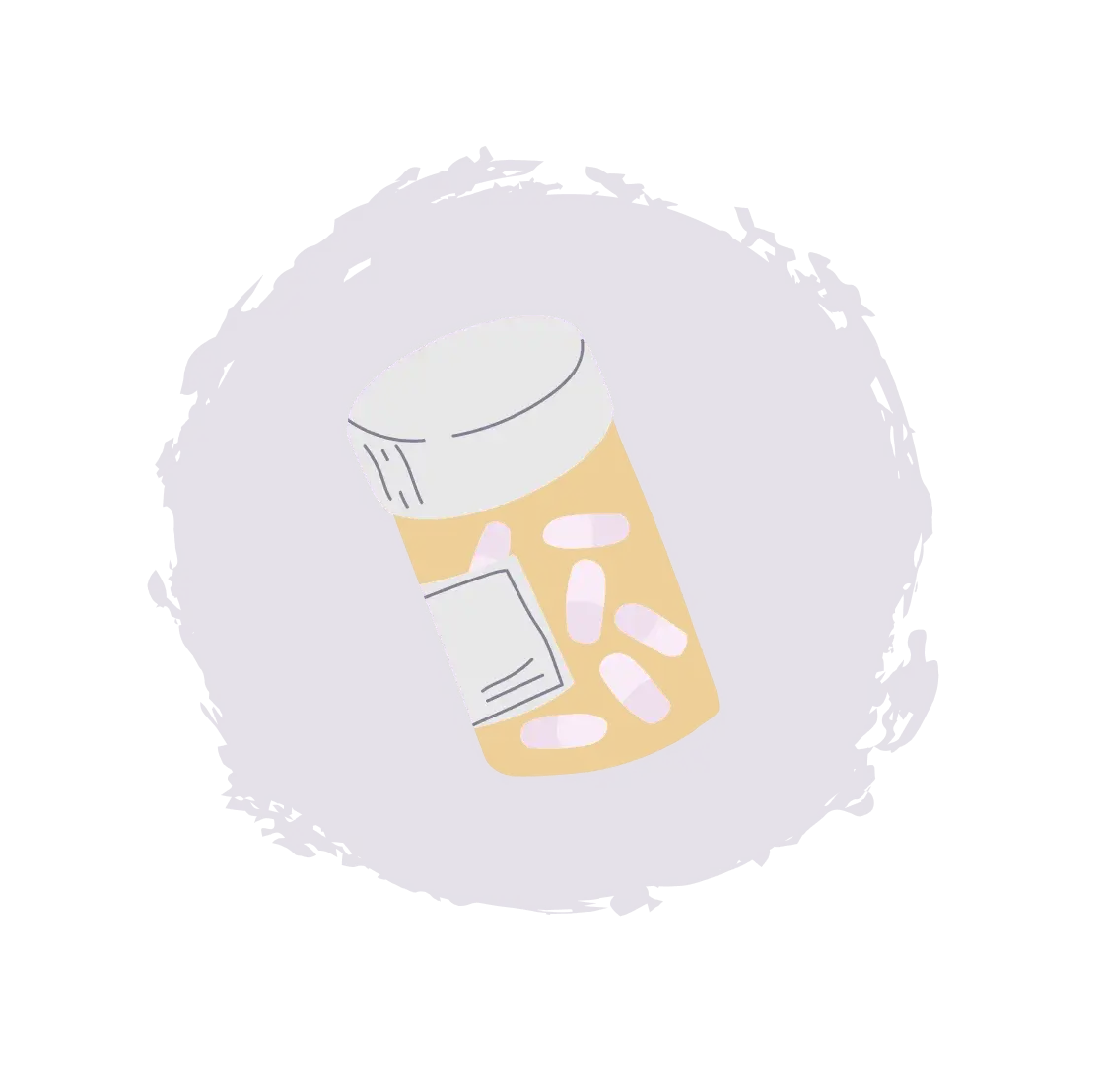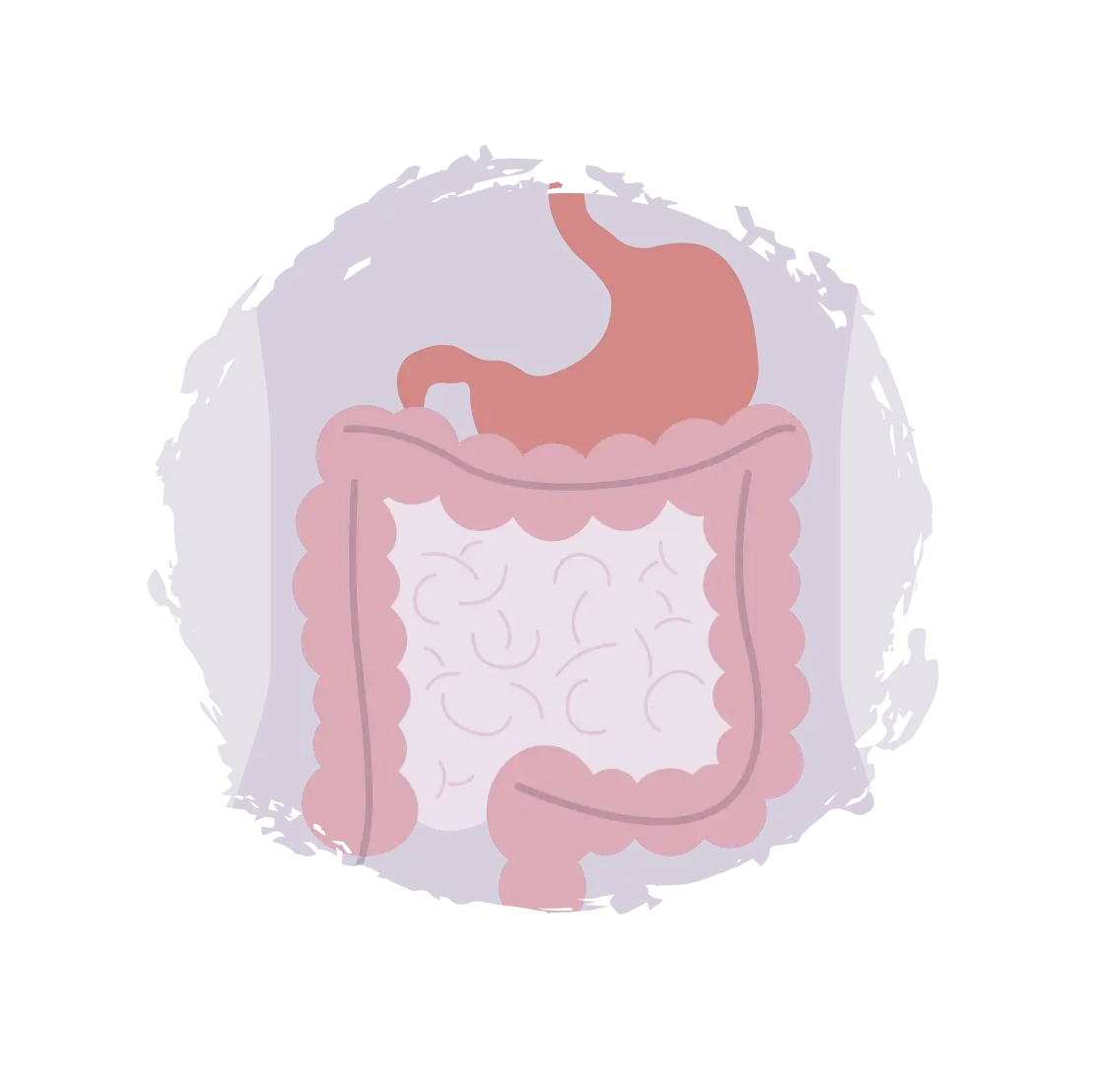
OFF periods can be disruptive
Many people with Parkinson’s experience symptom return (OFF periods)—and even one OFF period can really
disrupt things. Even when you take your Parkinson's medication regularly, symptoms can still return.
Symptoms that return can include motor symptoms (related to movement) or nonmotor symptoms* (unrelated to movement).
Motor symptoms may include
- tremor (shaking)
- problems with balance
- stiffness
*INBRIJA was not studied for nonmotor symptoms.
Nonmotor symptoms may include
- anxiety
- mood changes
- difficulty thinking
*INBRIJA was not studied for nonmotor symptoms.

SYMPTOM RETURN
IS FAIRLY COMMON
~70% of participants said they experienced at least 2 OFF periods a day in an online independent survey of more than 3000 people conducted by the Michael J. Fox Foundation.
About 40% of the approximately 1 million people in the United States living with PD will experience the return of symptoms between regular doses of medication.
There are many reasons why a person might have an OFF period.

Symptoms may return even though you have taken your medication as directed
- The effect of your regular medication may wear off prior to your scheduled dose or
it may take longer than usual for your regular baseline medication to have an effect
after taking a dose. - That's why Parkinson's medications may need to be added/adjusted over time
Parkinson's can change how well PD medicine is absorbed by your system, and so can your meals
- Parkinson's can slow the movement of food and pills through the gut
- Meals, especially foods high in protein, can interfere with oral levodopa getting from your
gut to your brain - There are other factors that can lower the amount of oral levodopa that enters your bloodstream and brain


People with Parkinson's report many ways that symptom return alters their lives
- This can include difficulty getting around due to poor balance or freezing of gait, tremor, or slowness
Start taking control of symptom return
talk to your doctor
I've always been very open with my doctors and I'm very familiar with the symptoms, so I was able to let her know that I thought I was starting to turn OFF and I told her that I just can't move forward or get up out of chairs too well. Is there anything that can help?
—Stephanie, person with Parkinson's
INBRIJA® (levodopa inhalation powder) IMPORTANT CONSUMER SAFETY INFORMATION
What is INBRIJA?
INBRIJA is an inhaled levodopa prescription medicine used to treat the return of Parkinson’s symptoms (known as OFF episodes) in people with Parkinson’s disease who are treated with carbidopa/levodopa medicines. INBRIJA does not replace regular carbidopa/levodopa medicine. It is not known if INBRIJA is safe or effective in children.
Do not use INBRIJA if you: take or have taken a nonselective monoamine oxidase inhibitor such as phenelzine or tranylcypromine within the last 2 weeks.
Before using INBRIJA, tell your healthcare provider about your medical conditions, including if you:
- have asthma, chronic obstructive pulmonary disease (COPD), or any chronic lung disease
- have daytime sleepiness, sleep disorders, sleepiness/drowsiness without warning, or use medicine that increases sleepiness, including antidepressants or antipsychotics
- have dizziness, nausea, sweating, or fainting when standing up
- have abnormal movement (dyskinesia)
- have mental health problems such as hallucinations or psychosis
- have uncontrollable urges like gambling, sexual urges, spending money, or binge eating
- have glaucoma
- are pregnant or plan to become pregnant. It is unknown if INBRIJA can harm your unborn baby.
- are breastfeeding or plan to breastfeed. Levodopa can pass into breastmilk and it is unknown if it can harm the baby.
Tell your healthcare provider about all of the medicines you take, including prescription and over-the-counter medicines, vitamins and herbal supplements.
Using INBRIJA and certain other medicines may affect each other and cause serious side effects. Especially tell your healthcare provider if you take:
- MAO-B inhibitors
- dopamine (D2) antagonists (including phenothiazines, butyrophenones, risperidone, metoclopramide)
- isoniazid
- iron salts or multivitamins that contain iron salts
How should I use INBRIJA?
INBRIJA is for oral inhalation use only. Do not swallow or open INBRIJA capsules. Only use INBRIJA capsules with the INBRIJA inhaler. Do not use the INBRIJA inhaler to take any other medicine.
Do not orally inhale more than 1 dose (2 capsules) for any OFF period. Do not take more than 5 doses (10 capsules) in a day.
What should I avoid while taking INBRIJA?
Do not drive, operate machinery, or do other activities until you know how INBRIJA affects you. Sleepiness and falling asleep suddenly can happen as late as a year after treatment is started.
What are the possible Side Effects of INBRIJA?
INBRIJA can cause serious side effects including:
- falling asleep during normal daily activities with or without warning. If you become drowsy, do not drive or do activities where you need to be alert for your safety or the safety of others. Chances of falling asleep during normal activities increases if you take medicine that cause drowsiness.
- withdrawal-emergent hyperpyrexia and confusion (fever, stiff muscles, or changes in breathing and heartbeat) if you suddenly stop using INBRIJA or carbidopa/levodopa, or suddenly lower your dose of carbidopa/levodopa.
- low blood pressure when standing up (that may or may not happen with dizziness, fainting, nausea, and sweating). Get up slowly after sitting/lying down.
- hallucinations and other psychosis - INBRIJA may cause or worsen seeing/hearing/believing things that are not real; confusion, disorientation, or disorganized thinking; trouble sleeping; dreaming a lot; being overly suspicious or feeling people want to harm you; acting aggressive; and feeling agitated/restless.
- unusual uncontrollable urges such as gambling, binge eating, shopping, and sexual urges has occurred in some people using medicine like INBRIJA.
- uncontrolled, sudden body movements (dyskinesia) may be caused or worsened by INBRIJA. INBRIJA may need to be stopped or other Parkinson's medicines may need to be changed.
- bronchospasm - people with asthma, COPD, or other lung diseases may wheeze or have difficulty breathing after inhaling INBRIJA. If this occurs, stop taking INBRIJA and seek immediate medical attention.
- increased eye pressure in patients with glaucoma. Your healthcare provider should monitor this.
- changes in certain lab values including liver tests.
The most common side effects of INBRIJA are cough, upper respiratory tract infection, nausea, and change in the color of saliva or spit. Another side effect of INBRIJA is sensation of choking right after use.
These are not all the possible side effects of INBRIJA
- Call your doctor for medical advice about side effects.
- You are encouraged to report negative side effects of prescription drugs to the FDA.
Visit www.fda.gov/medwatch or call 1-800-FDA-1088.
The risk information provided here is not comprehensive. To learn more:
- Talk to your health care provider or pharmacist.
- Visit www.inbrija.com to obtain the Full Prescribing Information, Patient Information, and Instructions for Use.
- Call 1-800-367-5109
INBRIJA® Indication
Treats OFF periods in adults taking carbidopa/levodopa (CD/LD). INBRIJA doesn't replace CD/LD.
Important Safety Information
Don't use if you have taken a nonselective monoamine oxidase inhibitor (eg, phenelzine, tranylcypromine) within the last 2 weeks.
SEE MORE 





